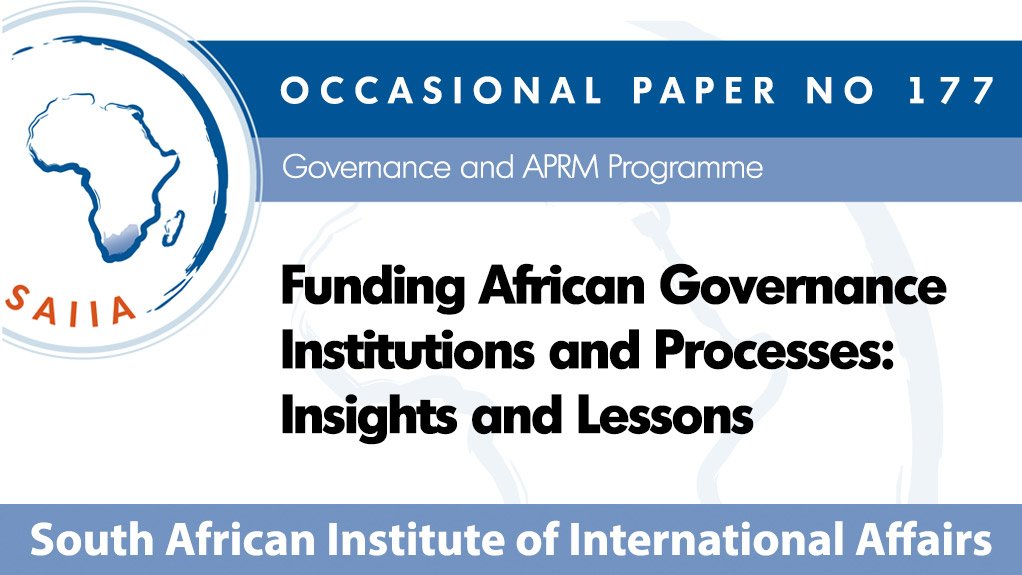- Funding African governance institutions and processes: Insights and lessons0.22 MB
This paper examines the financing of selected governance institutions in Africa, looking at national, continental and international levels and at the institutions and processes that assess, improve or incentivise governance. Specifically, anti-corruption commissions and African Peer Review Mechanism (APRM) structures are reviewed as institutions at the national and continental level respectively. In terms of governance processes, assessments at three levels are analysed: at the national level with UN Development Programme (UNDP) country-led governance assessments; at the continental level with the APRM self-assessment; and at the international level with the Public Expenditure and Financial Accountability (PEFA) framework. Governance improvement processes in a national, continental and international framework include constitutional reform, APRM National Programmes of Action (NPoAs), and the Extractive Industries Transparency Initiative (EITI). As processes that indirectly incentivise governance improvements, the EU’s Governance Incentive Tranche and the US Millennium Challenge Account are also examined. The latter, offering funding as a reward for good governance, presents a particularly interesting aspect of financing governance institutions. The APRM, as the premier African governance institution, is used throughout this paper as a point of reference.
While the APRM aims for African funding, the reality is a mix of government and donor funding. This paper shows ways of mitigating the external influence over process and content that comes with funding. Several governance processes entail self-assessments, such as the UNDP country-led assessments, the APRM’s self-assessments and the PEFA self-validations. In addition, the US Millennium Challenge Account ultimately leaves decisions on achieving this goal in the hands of governments by rewarding countries that have demonstrated good governance as measured by indicators. In terms of governance content, the paper examines standards set at national, continental and international level that are independent of funding. The EITI provides an interesting example of a shift in funding of country validations. Initially required to be funded by governments to demonstrate ownership, funding is now provided centrally to ensure quality control. The APRM has so far not embraced this aspect of quality control, thus failing to honour a commitment to a review by the participating countries after five years.
Author: Angela Reitmaier, South African Institute of International Affairs
EMAIL THIS ARTICLE SAVE THIS ARTICLE
To subscribe email subscriptions@creamermedia.co.za or click here
To advertise email advertising@creamermedia.co.za or click here











